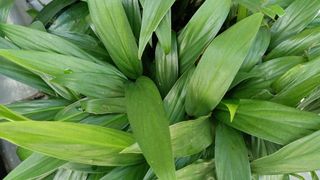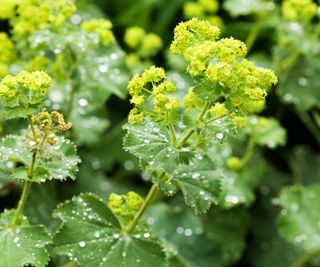Houseplants add depth and ambiance to almost any indoor space. Modern indoor plant ideas are abundant in stores and on the web, but most plant lovers also consider how characteristics like color, height, texture, and shine can all be incorporated into an interior design that adds appeal to their rooms. More than ever, modern houseplants have become a key element in creating vibrant home spaces that are filled with life.
How to Style Indoor Plants for Modern Homes
A wide range of plant species are available to home gardeners. Selecting those that grow best depends greatly upon your room’s growing conditions. This includes cultural considerations like light, temperature, moisture, and humidity levels. Home style may also come into play when you’re creating a cohesive design in harmony with structural or architectural elements of the home. In this article, specifically, we will explore indoor plants for mid-century modern homes in greater detail.
Best Modern Indoor Plants
1. Cast Iron Plant
(Image credit: Endah Widiarti / Getty Images)
When it comes to modern indoor houseplants, it’s nearly impossible to go wrong with Aspidistra elatior. This low-maintenance beauty impresses houseplant fans with its unique ability to withstand mistreatment and its adaptability to less-than-ideal growing conditions. Potted cast-iron plants can be expected to produce masses of lush foliage, even when they’re grown where light may otherwise be insufficient.
2. Fiddle Leaf Fig
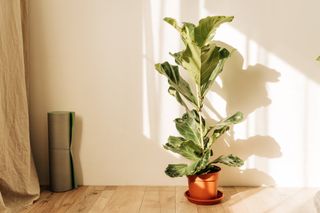
(Image credit: Kseniya Ovchinnikova / Getty Images)
Fiddle-leaf fig plants have long been popular for their distinctive foliage. Despite its reputation as a temperamental houseplant, most houseplant growers cannot resist the allure of its shapely beauty. This plant requires routine monitoring for signs of stress, and special attention must be paid to meeting its specific needs.
3. Monstera
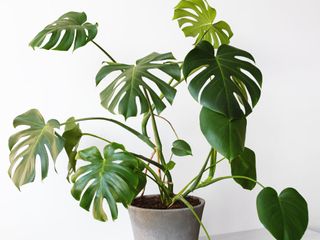
(Image credit: Kseniia Soloveva)
Always popular, monstera plants are known for their immense leaves and holey appearance. Technically a vine, these plants grown in large containers reach impressive sizes. Monsteras are ideal for large rooms, or in smaller spaces where they can become a focal object. Like many houseplants, the impressive foliage of a monstera prefers a location where it can receive bright, indirect light.
4. Philodendron
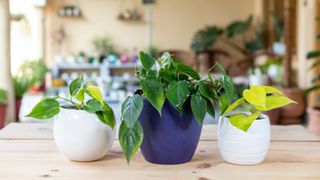
(Image credit: Bilal photos / Getty Images)
Depending on the species, the look and needs of the philodendron can vary greatly. Many cultivars of these modern indoor plants are prized for their interesting appearance. Despite their height, most philodendrons will remain compact in form. This makes them an excellent choice for smaller spaces or the corners of a room. Should they grow too large, philodendrons can be pruned routinely to maintain their desired size and shape.
5. Prayer Plant
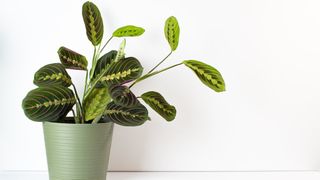
(Image credit: AnaSha / Getty Images)
The prayer plant is a great choice if you are new to maintaining houseplants. Highly adaptable to a wide range of lighting conditions, this tropical specimen dazzles plant growers with its lush foliage and intricate leaf patterns. True to its namesake, first-time houseplant gardeners will be amazed to watch as this plant folds its leaves each evening.
6. Snake Plant
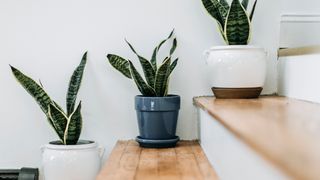
(Image credit: Cavan Images / Getty Images)
Yet another plant known for its robust nature, a snake plant offers houseplant parents a distinctive form and appearance. Their tall foliage remains upright, making them ideal as structural plants that add interest to indoor spaces. In addition to its beauty, some experienced growers note this houseplant’s purported ability to help purify indoor air and reduce pollutants.
Some of the best and most interesting houseplants have been considered “modern” across many different decades. Including houseplants in interior design never grows old. Try grouping houseplants that differ in height, texture, color and habit in any spot that supports their needs. Houseplant parents will tell you their plant babies warm and enliven their space and add interest to their interior design.


